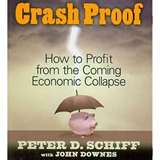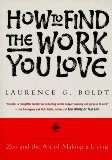Created on Thursday, 23 April 2009 16:55
About 12 months ago, when 'sub-prime' and 'short-selling' were terms taking inches only in The Economist, I made a decision. I wasn't buying any more stocks for the foreseeable future.
Why?
A combination of years of learning about derivatives trading, short selling and other such agents of volatility, greed and suffering, and a crossroads in my life when I was going to attempt to stop putting my impulses to gamble above my ethics.
Some scoffed at my 'decision', one based on an ethical hatred without rational explanation. After all, the stock market is a valuable piece of public infrastructure. The vast secondary market that are stock exchanges guarantee the liquidity of shares bought in the primary market, that space where companies can connect with Ma's and Pa's and make a contribution to the real economy – to real lives. I agree. But…what if the market is sick? Or more accurately, what if we as a society are sick? Humans have a declining patience to wait for anything, including wealth? For an animal as advanced as us, that is sickness.
Let’s have a look at the armory that drove this crisis:
Hedge funds ("that provide valuable liquidity" – Alan Greenspan's novel – 2007) short sell in order to deliver profit in 'rising and falling markets'.
Private equity ("That provides valuable activity in mergers and acquisitions, the only true democratic function of modern corporations" – Alan Greenspan's novel 2007) allows corporations to join the leverage party that mums and dads with plastic cards have been drinking at for decades.
Derivatives of such complexity (that provide valuable liquidity – Alan Greenspan's novel 2007) that the AAA companies that back them happily hand out billions in bonuses that in less than 12 months, would be needed to rescue the company from insolvency.
When I made my decision, I knew of those weapons above. What I did not know was that my 'ethically responsible' decision would prove to be a smart one financially. It would be, hold the phone a minute, 'sustainable'. For all I knew, the markets could have recovered, people I know who bought in at that time could have soon been rolling with cash. As Greenspan said over and over and over again in his memoirs, yes these liquidity tools add to volatility, but they provide dynamic efficiency to help the market recover quickly.
Anyone watching the way the market has died only to recover the next day over the last year might have sided with Greenspan. Me included.
Unfortunately, things were dirtier deep down in the balance sheets of Wall Street than the consciences of Enron's board of directors.
Problem is, what if volatility is mass liquidation of economic lynchpin institutions? Ordinary folk who don't understand what a "massive write down" is, WILL understand bankruptcy. And they will mobilize the winds of change.
Unfortunately, when a hundred thousand poor Americans go under they bring a neighborhood down to selling crack. When the rich go down, they bring the whole country down. I guess we can't let that happen. And that there, is the upper-class socialism that is the bailout of these companies. This from the folk most adverse to letting the government kick some bucks to the poor.
It will be easy to look at the reaction of the populace to this 'crisis' as progress. Don't be fooled. The regulation that will come out of this situation will go too far. It will miss the point. It will reek of the same populist human and political architecture that caused the mess. Fear and greed are on opposite sides of the same train track. Any gambler will tell you that.
Progress is when we make decisions not based on emotions, but with rationality, evidence, conviction, and sound philosophical ideology.
Ideas anyone? 🙂

 common-sense advice on how to avert disaster.
common-sense advice on how to avert disaster. systematically focuses them down into simple, yet effective criteria to pursue the work you love. The first 2 chapters examine the paradigms and obstacles that get in the way of doing the work you love. The third chapter offers a basic formula for finding the work you love:
systematically focuses them down into simple, yet effective criteria to pursue the work you love. The first 2 chapters examine the paradigms and obstacles that get in the way of doing the work you love. The third chapter offers a basic formula for finding the work you love: